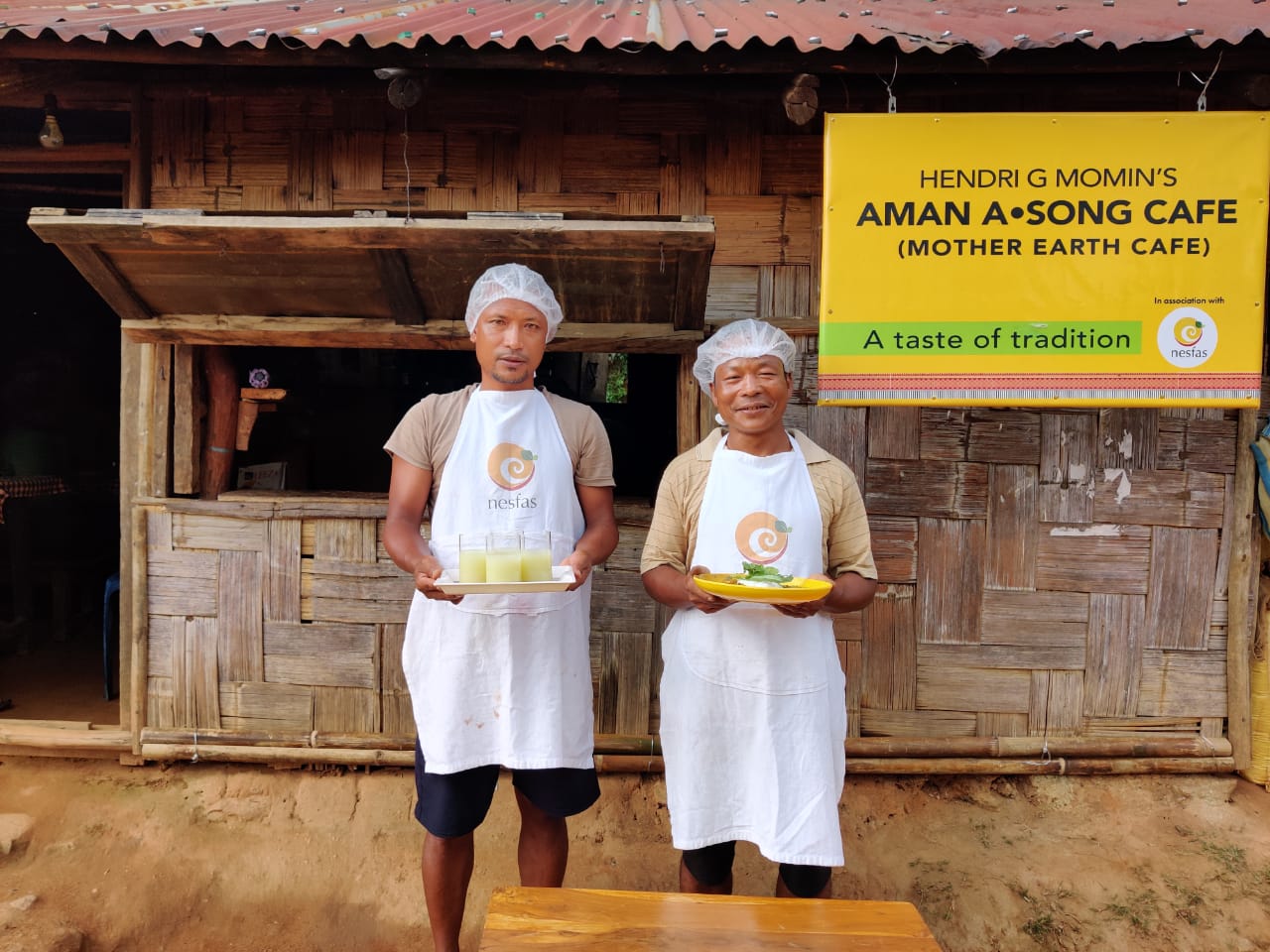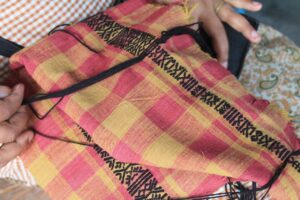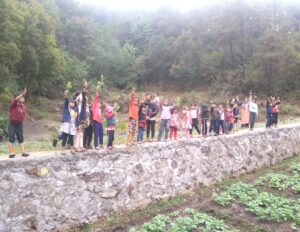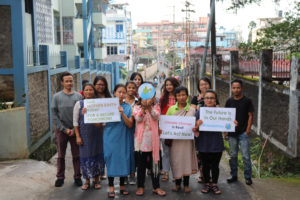By Chenxiang Rimchi N Marak, Janak Preet Singh and Bhogtoram Mawroh
The Covid-19 pandemic has disrupted the economy throughout the world with small business being particularly vulnerable because of their lack of capital to tide over the lull in the economy. For the bigger establishments retrenchment of the workers is one of the options to reduce costs. This option is not available for small business owners because they provide the capital as well as the labour to the enterprise, i.e., a self-employment initiative. A very important category of such entrepreneurs are the ones who run the local tea shops (such establishment provide food as well as tea) in the villages. Manned mostly by women, who are residents of the village itself, these shops are a distinctive feature of the village economy of Meghalaya. Characterised by important forward (customers from the local village itself) as well as backward (local suppliers) linkages their contribution to the local economy is very significant. These shops are also spaces where people come not only for food but also meet to one another creating a vibrant social space. Suffice to say these shops are an important part of the community life in rural Meghalaya.
When the lockdown began the local tea shops like other establishments had to close down. Like many, the owners of such establishments also faced the prospect of loss of income. One of such entrepreneurs is Hendri G Momin who had a tea shop in Darechikgre, a village in the Rongram Block of West Garo Hills. Originally from Kapasipara, South Garo Hills he is the son of Pearnson A Sangma and Monila G Momin. When he was 21 years old he married Mijani A Sangma. In order to earn his livelihood and support the family with 5 children,Hendri moved to Darchikgre and opened a tea shop at Darechikgre in 2005. Initially his was the only shop in the area and he made good profit. Like all good ideas there were others who wanted to follow suit. Soon another individual from the same community started a shop looking to emulate Hendri’s success. This had an effect on the business and profit declined. This is a classic example of market saturation.
Initially when a commodity is introduced into the market which has no precursor, profits margins are high. This situation does not last long since others want to emulate the same success. This brings in competition and ultimately as is the nature with an unregulated economic environment over production, i.e., market saturation takes place. The initial profits start declining until the losses for some become so severe that they have to exit the market. Those who have already accumulate capital use their stock to tide over the periods of decline in profit till others leave which would allow profits to rise again. This favours entrepreneurs who are already entrenched and have additional resources compared to others.
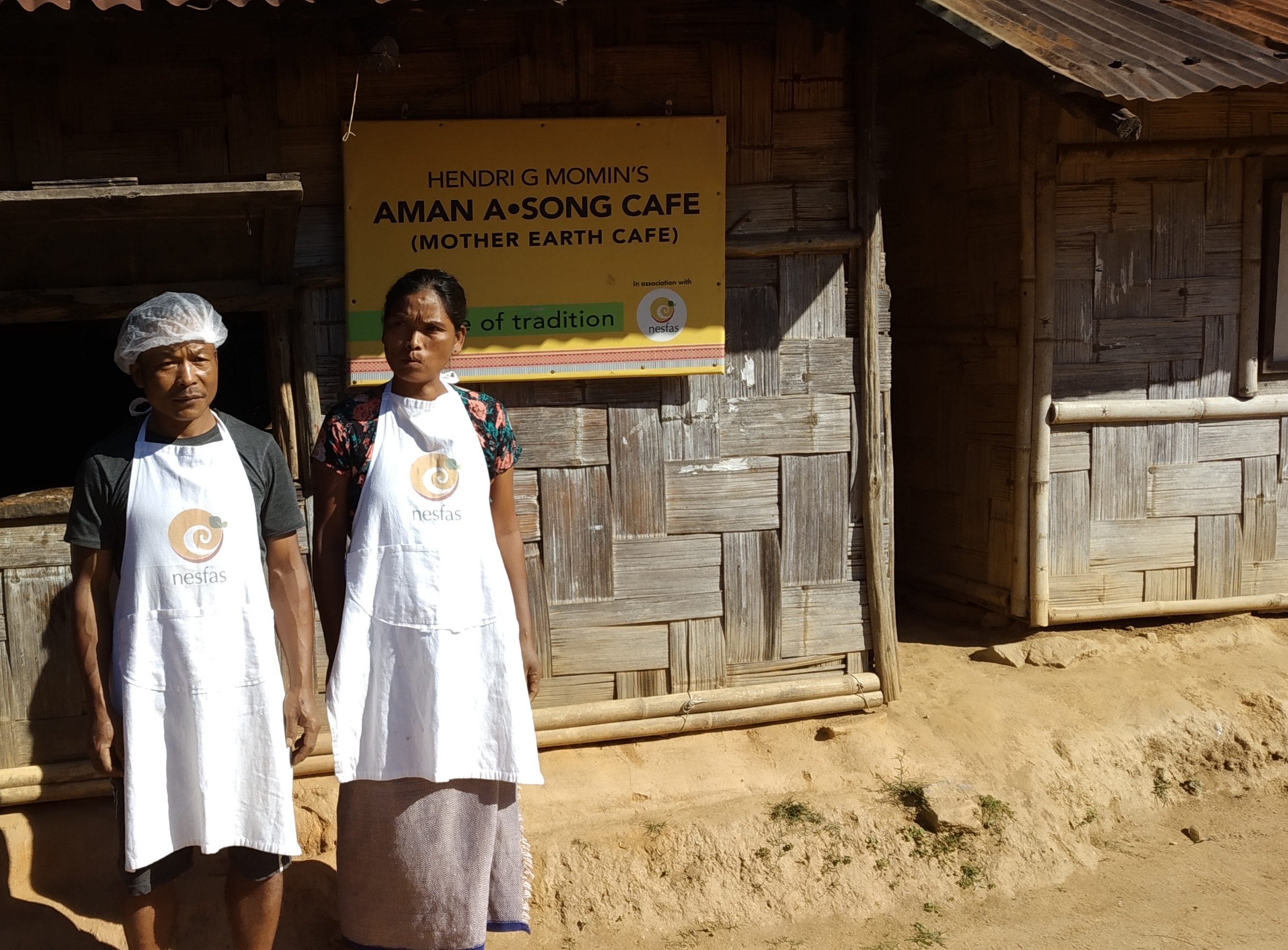
Another way in which entrepreneurs try to get out of the situation of stagnating profit is by innovation. Instead of providing the same services/commodities like everyone else they bring a new product or adopt innovations to make them stand out from the rest. This has the effect of weaning away profits from the other entrepreneurs and adding it to those of the innovator’s. This situation lasts as long as the others do not adopt the innovation which would eventually lead to market saturation or bring their own innovation to differentiate them from the competition. Those who do neither have to be satisfied with small margins or eventually they exit the market. Hendri faced the same dilemma and it was in such a situation that NESFAS came to his aid.
Being impressed by his passion for cooking and his skills in developing innovative ideas for the food, in 2019 NESFAS supported him to redevelop his shop as Aman Asong Café (Mother Earth Cafe). It was inaugurated on 27th August 2019. Aman Asong Café is a version of the Mei Ramew Cafe that NESFAS is developing in the Khasi-Jaintia Hills. A Mei Ramew Café’ is an indigenous café that serves local food and encourages innovation in local recipes with maximum use of locally available ingredients. It is a novel and innovative method of bringing together the pleasures of taste alluded to local cuisine diversity, culture and identity. The Café aims to improve livelihoods of individuals, fuel the rural economy and advocate and re-establish traditional, cultural and sustainable food practices. The overriding concern in establishing this Café is to bring communities together in the form of suppliers, consumers and promote regional, culture, tradition and art.
Profit for Hendri began to pick up with customers from as far as 20 km away coming to Darichikgre to visit his café. All the raw materials were sourced locally giving it its authenticity. Then out of the blue, the pandemic struck. Like everybody else Hendri had to close his establishment. Unlucky for him the period of lockdown happened to coincide with the spring season which is the best season for business. During this season many food plants (especially harvested from the wild) are available which allows Hendri to diversify his menu attracting customers who come to taste the dishes. The lockdown threw a spanner to such expectations. But Hendri was not dissuaded by the difficulties. Like he did with the redevelopment of his shop into the Aman Asong Café he again came up with solutions to deal with the current crisis.
Hendri came up with the idea of baking breads which was new to him. During the pandemic people were struggling to get food supplies, be it readymade or the raw ingredients. He started baking breads that can be eaten by people during their breakfast along with the other value added product like bamboo shoot pickle, wild fruit juice, among others which he sold to them. Since the café was closed he went door to door (only within Darichikgre) to sell his products whilst also following the protocols. For baking the breads he used wheat flour and yeast. As already mentioned above, baking was a skill he had to acquire for the particular situation. Currently he owns a small electrified oven which is not enough to meet the demand. For the future there are plans to make an outdoor oven to bake breads which will allow him to increase the production. While looking for solutions to deal with lockdown Hendri learnt a new skill and came up with a new product which has become a part of his café’s menu. Besides being a café owner Hendri is also a farmer and he does shifting cultivation (one of the most ancient and ecologically sustainable method of land use in the tropics). In his field he has sowed millet which he plans to use for making millet bread in the future. Millet, a traditional staple cereal of the past is facing neglect and marginalisation. However its high nutritional content and ability to the withstand vagaries of weather has led it to be described as a super food and a climate smart crop. In times of climate change millet will have a very important role to play for ensuring sustainability of the local agroecosystem.
Like he did with himself, Hendri would like to encourage rural entrepreneurs and tea shop owners like him to not be discouraged by hardships but find innovative ideas to tackle the crisis. With the Government allowing certain relaxations he has opened his café with a much more diverse menu (which includes the bread) and greater importance on value added products. Because only limited customers can enter the café due to the need for social distancing he has been focusing on take away food items. Hendri has requested NESFAS to help with the labelling and packing of the value added items which will be taken up once the lockdown is lifted.
The pandemic taught Hendri many lessons in terms of food security and the challenges of livelihood during these extraordinary times. Instead of being cowed by the difficulties, he instead dug into the passion and determination which had enabled him to take the risk and rebrand his café as Aman Asong. Using those same motivations he added a new skill to his repertoire and brought a new product while also developing a new mode of supply to deal with the circumstances created by the pandemic. In the process he not only saved his business but has also found a way to expand it. The future sustainability of local business depends on the skill and acumen of local entrepreneurs like Hendri who find a way to turn a crisis into an opportunity.

